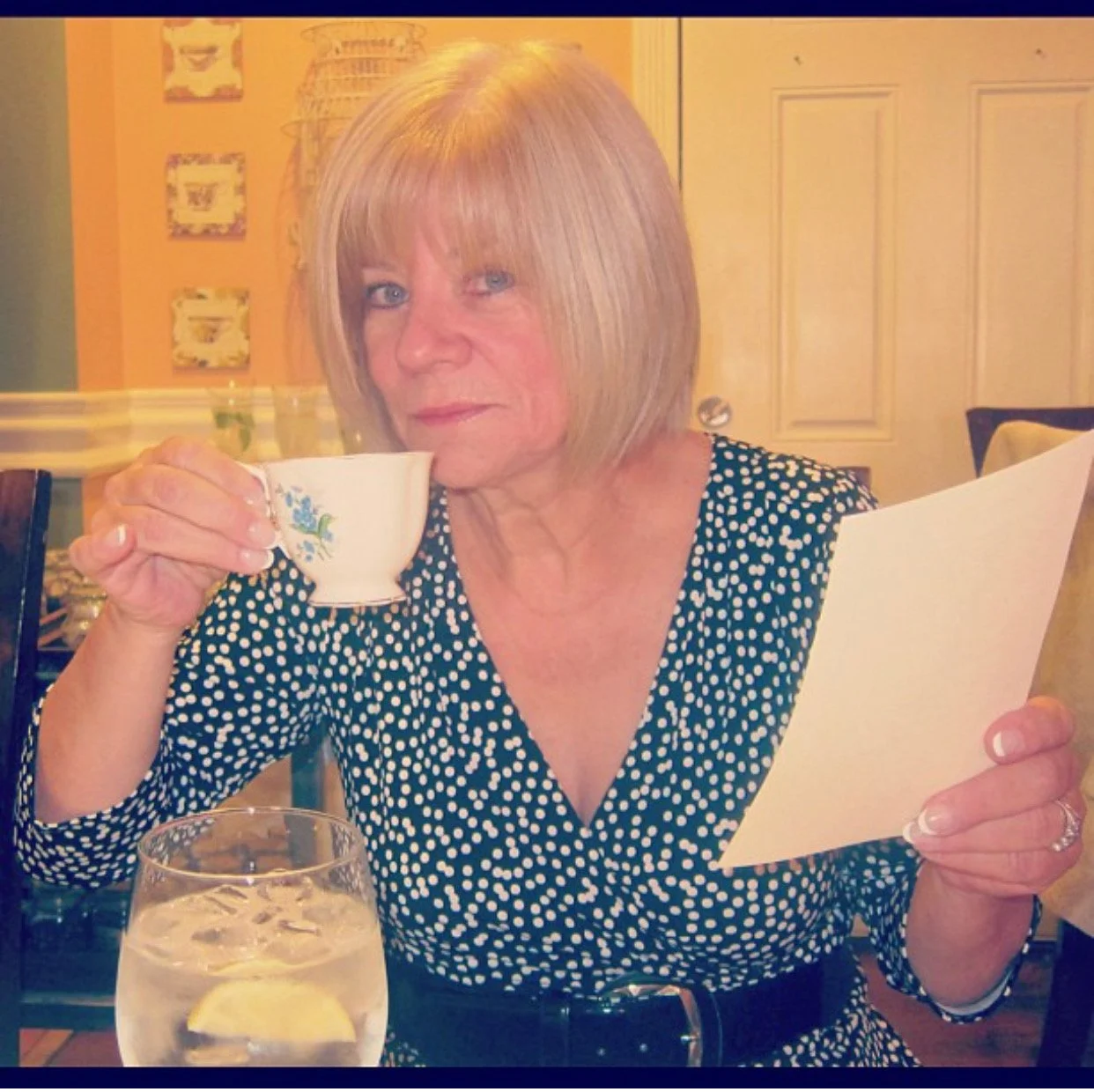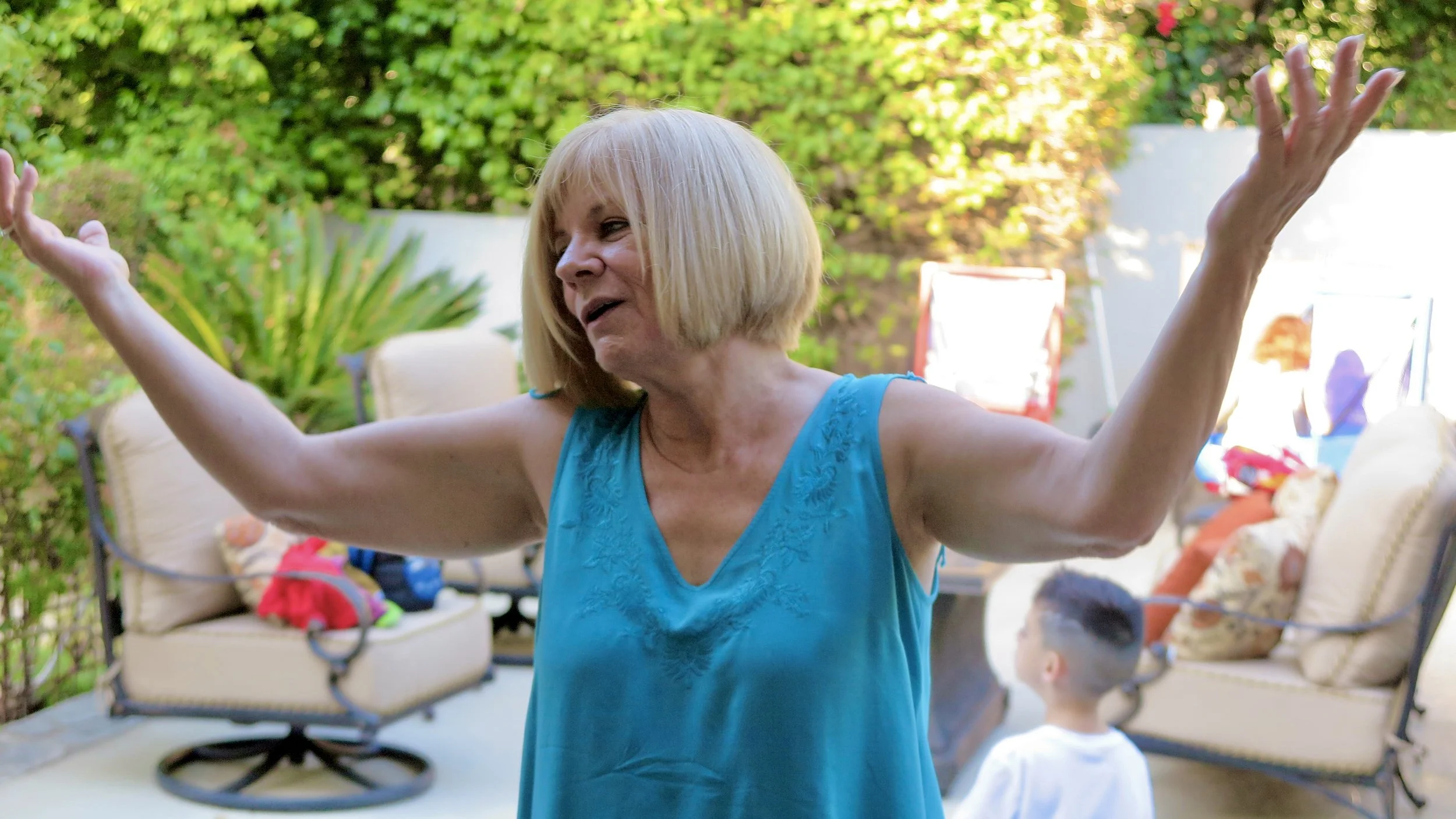Finding Grace in Grief
Dedicated to my mom
An intimate reflection on navigating grief after losing a loved one, and how to find solace through meditation and intentional living.
I know grief intimately. In July 2020, amid the turbulence of the Covid pandemic, I lost my mom after her brave and difficult battle with small cell lung cancer. That year marked a profound turning point in my life, one I never saw coming. While I wish with all my heart that I hadn’t had to say goodbye so soon, time has revealed small blessings amid the pain. Among them: a deepening of my spiritual life and the discovery of meditation as a way to stay connected to her. In the stillness of meditation, I feel her comforting, maternal presence. My hope is to share this gift with others, so they too can feel connected to lost loved ones.
Whether you are seeking a safe space to sit with your grief or longing to feel more connected to a loved one who has passed, this meditation offers a gentle container for both.
My mom, Annette, started smoking as a teenager in England during the 60s, a time when the dangers of cigarettes weren’t widely understood. By the time the risks became common knowledge, she was already deeply addicted. Over the years, she had periods where she managed to quit, but I remember vividly that after her father passed away, also from smoking-related cancer, she picked it up again. At the time, I couldn’t understand it. Looking back, I see it now as a reflection of how grief and addiction can intertwine in complicated ways.
She never smoked in front of us, her children. There was a bathroom by the front door of my childhood home (the same home she passed away in) and that was her smoking bathroom. It reeked of cigarettes, but we all just pretended that we didn’t know she was smoking in there. To be honest with you, it was such a part of our everyday life that we didn’t really question it.
Time moves quickly. Her children grew up, graduated, and moved out of her home. My brothers and I all got married around the same time and started our own families around the same time. She was an incredible grandmother. Her gift with newborns is still spoken of today. She was just a natural. She gave all her grandchildren their first baths, taught us proper swaddling techniques, was present for every milestone, and would happily babysit her grandchildren, easily the six loves of her life.
Before her symptoms emerged, there were signs. First, she began to show signs of depression. My heart tells me this was the beginning of her illness. Her energy was depleted, and she would watch the news 24/7. My brothers and I didn’t know what to do. We thought maybe she was feeling sad about living in our family home without her husband. My parents had separated years before, and while my dad moved on with his life, she always seemed a bit stuck. We thought maybe if she moved to a new home, she would feel happier. But that was not the case. She loved that house.
And then the physical signs appeared... hers were not the usual lung cancer symptoms and to be honest, it is very personal to her and not for me to share. But I will say, she lost a significant amount of weight and was a shell of her former self. We did all sorts of bloodwork, which appeared normal. My cousin, who is a PA, pushed us to have her do a full body scan. And that’s when we got the news that changed our lives forever. Small Cell Lung Cancer. When my brother first told me, I was in the parking lot of a Costco, and I said “Oh, its small cell. So that must be the good one.” And all he said was “I don’t think so.” Our doctor friend confirmed the worst. She died almost exactly one year after we received the diagnosis.
People often assume that the end is the hardest part. But in truth, the journey through cancer, especially one as aggressive as small cell lung cancer, is filled with complexities that words can hardly capture. In the beginning, we were all-in: determined to fight, to hope, to find a cure. Looking back, I realize we may have pushed my mom into treatments and decisions she might not have chosen for herself. She didn’t fight for her own sake, she fought for us, her children and grandchildren. We saw countless doctors and searched the internet for every possible option. There were endless chemo sessions, radiation treatments, holistic remedies—we tried everything. We were desperate to save her, and she was willing to endure it all for her family’s sake.
And then the pandemic hit. My mom was already fighting lung cancer, and now a highly contagious virus, one that specifically attacks the lungs, was spreading uncontrollably. The world shut down, and so did something inside me. The fighter in me collapsed. I remember one rainy day in Los Angeles, sitting in the car with my husband. I couldn’t stop crying. Something in me was unraveling. My skin felt like it didn’t belong to me, like I couldn’t stand being in my own body. I was breaking. And I didn’t know how to put myself back together.
My husband gently told me to call my mom. So, I did. And I’m so grateful I made that call. I told her the truth: that I was heartbroken I couldn’t fix her. I cried A LOT and poured out the grief I had been holding in. And in that moment, something shifted. My mom, so tired from months of treatment and living in survival mode, suddenly became a mom again. For the first time in a long while, I heard her voice not as a patient, but as the woman who had always cared for me. I felt guilty expressing my pain to her when she was already carrying so much. But she met me with love and strength, as if she'd been waiting for the chance to step back into her role and purpose, as a mother and grandmother. And for that brief moment, she was fully herself again.
I will be honest - that conversation didn’t solve everything. I was still depressed, but now I could see where it was coming from. When someone we love gets sick, we become desperate to save them. In that desperation, we often lose sight of the truth. We knew the prognosis… my mom was going to die from lung cancer. And still we urged her to do chemo and radiation, in hopes for a miracle. It came from love, but I was questioning the choices that were being made for her, not by her. She lost her hair, her dignity, and her precious time with loved ones.
I’m not saying medicine is wrong. In many cases, it can be life-saving. But in her case, we knew the best we could hope for was a little more time. And even that came at a cost. The pain I carry is not just about losing her. It's about how we didn’t allow her to go gently with the grace and dignity she so deserved. In the end, she passed at her home, surrounded by love. And somehow, that moment, her final breath, was less painful than all the suffering that came before it. Because she was finally free.
I was lucky to find a therapist during her illness that prepared me for losing her and talked me through the grieving process. I threw myself into my children, pouring everything I had into them. The following year, I chose to homeschool - partly to avoid the chaos of Zoom school, partly to keep myself occupied, but mostly to immerse myself in motherhood, the way she did. She had always been a stay-at-home mom. Every day after school, we came home to warmth and support, to a homemade meal, to her. Now, looking back, I realize how deeply fortunate I was to grow up that way. It couldn’t have been easy, constantly giving of herself, day after day, but she did it with quiet grace.
It took me some time, but after working with my therapist, reading a lot of books, and embracing a spiritual life, I learned how to move through grief and all its stages. I don’t think it’s ever a picture-perfect process, but it can be a beautiful one. I once heard the actor Andrew Garfield describe grief as "the unexpressed love we didn't get to tell them,” and "love with nowhere to go". He also beautifully expressed that grief is a privilege, a sign of deep love, and a way to stay connected to those who have passed. That really resonates with me, and I take that sentiment into my daily meditation practice, especially when I’ve been deeply thinking about my mom or needing her guidance and love.
Meditation doesn’t remove grief, but it helps us sit beside it. Over time, this practice can soften the sharp edges of pain and reduce the intensity of overwhelming waves. It doesn’t make grief disappear, but it helps us learn how to carry it. In those quiet moments, you may feel a sense of connection to the one you've lost, through memory, a felt presence, or the lasting bond of love that remains. These moments aren’t imagined. They're deeply real and healing. I suggest you lean into these feelings. They may rise with intensity, but it’s often in those very moments that healing begins to unfold. And if you need extra support, look for a grief counselor in your area to help you with your loss. So many unexpected feelings arise when you are grieving, and you need a safe place to go where you don’t feel judged and can freely express your feelings and emotions.
For me, grief has deepened my meditation practice. It gives me a reason to return to the cushion each day, a quiet invitation to sit, to feel, and to connect. In those still moments, I often sense her presence, not in a physical way, but emotionally, spiritually, and energetically. At times, it feels like a reunion. But always, it reminds me that love doesn’t end. It simply changes shape.
I’ve also found comfort in small, actionable ways: spending time with family, talking to them about her, cooking some of her old recipes, buying blue hydrangeas because she loved them so much, and writing about her and the impact she made on my life. These simple actions give that love somewhere to go. They remind me she’s still part of me.
If you’re moving through grief, please know you don’t have to walk this path alone. I’d be honored to share more about how meditation helped me and how it might offer you a quiet source of support as well. Reach out anytime. I also offer a free guided meditation all about grief and loss on the Insight Timer app that I truly poured my heart into. I hope it brings you comfort
Below, I’ve also included a few books that carried me through the hardest moments, guiding me toward clarity and peace, where I’ve finally arrived to see grief as a profound expression of love.







